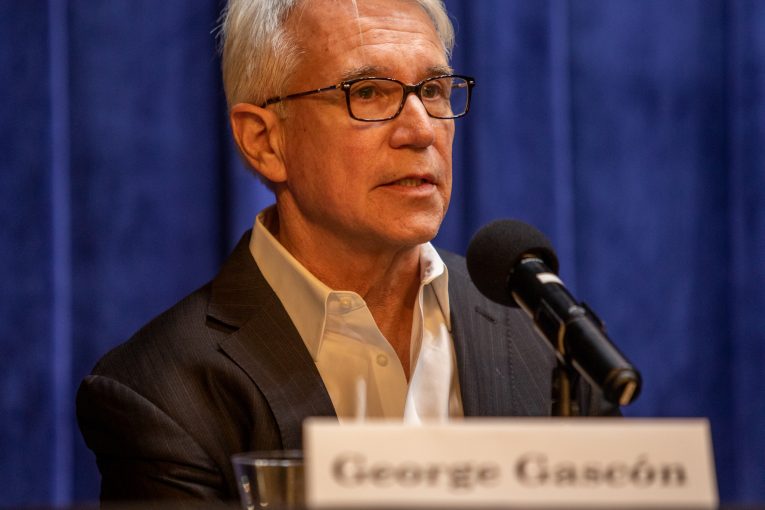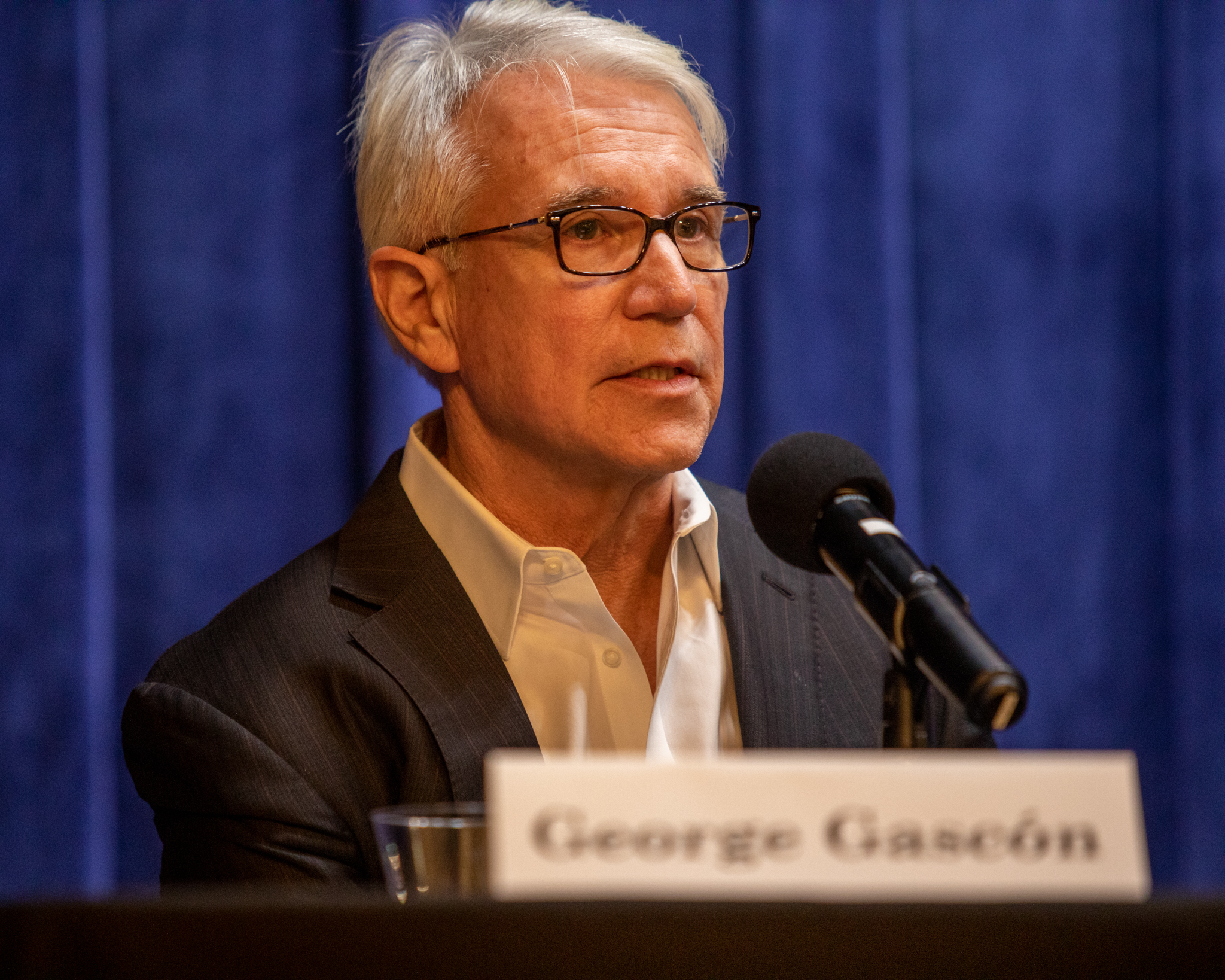

By David M. Greenwald
Executive Editor
Los Angeles, CA – Wednesday marked the deadline to turn at least 569,000 valid signatures to force the recall of Los Angeles District Attorney to be placed on the ballot. Local media has reported that the campaign has already spent over $8 million to gather 717,000 signature, which they believe will be more than enough—even if up to 20 percent of those signatures are invalidated.
“On Wednesday, we will be submitting the required signatures to initiate a recall,” according to a statement from the Recall DA George Gascón campaign.
“The sheer magnitude of this effort, and time and investment required to get to this point, show how strong the public desire is to remove George Gascón from office. From day one, this recall has been led by the very victims who Gascón has abandoned, ignored and dismissed. When the recall qualifies, he will not be able to ignore them any longer.”
At the same time, supporters of Gascón have pushed back.
“After trafficking in fear and misinformation since the day George Gascón took office, a recall effort bankrolled by fringe conservatives has submitted signatures in an attempt to force an off-cycle election,” said Founder and Executive Director of the Prosecutors Alliance, Cristine Soto DeBerry in a statement on Wednesday. “It’s a power grab fueled by the same political operatives and mega-donors that put Donald Trump and Mitch McConnell in office.”
The group added, “Criminal justice reform has broad support from people across the political spectrum as voters know the status quo has failed them on every level. This is a system defined by soaring rates of recidivism, shocking levels of racial disparities, and wasteful spending of taxpayer money. It is a system that created a revolving door from the streets to our jails and prisons while ignoring the underlying problems that drive crime in the first place.”
“After 30 years in the LAPD and three terms as an elected prosecutor, George Gascón was elected to reform this system and prioritize safety, accountability, healing and justice,” DeBerry said. “He has reduced violent crime in every leadership position he has held, and his proven leadership is an asset to LA County. He kept his promises to voters when he refused to walk a path long defined by failure. The voters will stand by the values and vision he is fighting for.”
She added, “Reform isn’t a threat to community safety, it’s a threat to a system that has failed to make us safer.”
Last month, voters in San Francisco turned out DA Chesa Boudin, who succeeded Gascón in San Francisco, and pushed for similar reform.
There are a number of similarities between the two efforts, including the amount of money spent, who is behind the push to recall and even the conditions on the ground.
An LA Times article from two weeks ago noted, “There is often a disparity between fact and feeling when it comes to Gascón’s critics, however.”
The Times cited its own analysis from earlier this year , which it said “raised significant questions about the recall campaign’s attempts to blame Gascón’s policies for increases in crime.”
For example, “While homicides have surged during Gascón’s tenure, violence also has climbed significantly in jurisdictions overseen by prosecutors who oppose Gascón, such as in San Diego and Sacramento. Experts said it is unlikely Gascón’s policies immediately affected crime rates.”
This was a similar point to that raised by Boudin’s supporters in San Francisco, that places like San Francisco, Alameda and Kern, led by traditional tough-on-crime prosecutors saw larger increases in crime.
Moreover, the Times points, “During Gascón’s first year in office, prosecutors also filed felony cases at a near identical rate to what they did during ex-Dist. Atty. Jackie Lacey’s two terms.”
The anti-recall campaign fired off a blast email after Boudin’s defeat—borrowing from the Boudin playbook which did not work out very well, the anti-recall campaign similarly attempted to paint the LA recall effort as a partisan power grab.
“The Republican Party, including those committed to tough-on-crime policies, started organizing the minute we elected George Gascón as district attorney. Rightwing groups blamed him for every problem in Los Angeles, lied about the causes of crime, and started collecting signatures,” the email read. “Their first recall effort failed. Not to be deterred by the results of a free and fair election, they started again spending big.”
The Times pointed out, “While the recall has tried to brand itself as a bipartisan effort, many of its most visible voices, and most of its financial support, come from conservative circles.”
Such tactics by the recall opposition did not work well in San Francisco. Nor did belated efforts by the media to analyze crime data.
Another parallel was between the Troy McAllister case in San Francisco where a man was released early only to kill two pedestrians in a hit and run. In LA, it was a man released from prison who ended up shooting and killing two police officers.
The LA Times reported that the man who shot and killed the two officers “could have faced significantly more time in prison when he was last charged with a crime. But one of Dist. Atty. George Gascón’s most heavily criticized policies probably resulted in a lower sentence, according to documents reviewed by The Times.”
The Times reported, “Flores had been convicted of burglary in 2011. Burglaries are strike offenses, which make suspects charged with later crimes eligible for harsher sentences. Flores’ earlier conviction means he had one strike against him when he was charged in 2020.
In late June, however, Gascón defended his office’s charging decisions.
“Understandably, many of us are angry, including myself, and we all wish that we could predict violence. But the reality is that we can’t,” he said. “In this particular case, the history of the suspect, Mr. Flores, did not contain any evidence of violence. He was basically someone that had been drug addicted for many years.”
Gascón noted that Flores had been arrested mostly for drug related offenses, and “almost a decade ago, he was arrested and convicted for burglarizing his grandparents’ home and stealing a TV.” But since then, he “remained pretty much away from the criminal justice system until the arrest in this particular case where he was arrested for possession of drugs, for personal use and the possession of a gun.”
He said “the outcome in this particular case, given what we knew, then no history of violence, very little contact with the criminal justice system for nearly 10 years, was appropriate.”
Gascón said, “When people are arrested for serious crimes, we work hard to ensure that there are serious consequences, including lengthy periods of incarceration, but we have an imperfect system and that’s not only here in LA that’s everywhere. I know this is frustrating to hear, and they may not help heal the wounds for some, but we do not serve our community when we try to pretend that we can predict 100% of the time when these cases are going to occur.”
Instead, he argued that the “best we can do is continue to work towards a safer community and doing the things that we know work like providing effective intervention when people are under probation, ensuring that we have transitional services when people are getting out of prison, because 95% of them do, ensuring that we have appropriate trauma recovery working to ensure that people get employment, that they get housing and they get the services that they need.”
In an interview with the Vanguard, Boudin discussed the McCallister case himself.
“I knew it was something we had to be worried about for a couple reasons,” Boudin explained. “One is it’s a classic conservative police union playbook, you know, it’s, it’s not new, it’s not creative, it’s not original, but it has been used for decades and it has worked.”
He noted that this has worked even at the presidential level, with Willie Horton.
Boudin added, “The criminal justice system, no matter who is the DA, is managing tremendous amounts of risk every day, with really, really imperfect tools and resources.”
He noted, in this case, “the police don’t bring us enough evidence to file charges. Or in other instances, a judge refuses to detain somebody that we think should be held in, or because in other cases, the constitution or presumption of innocence, due process requires certain kinds of procedural limits on the ability to preemptively detain someone who may pose risks.”
In addition, even when they do get a conviction, “so many of the problems that led people to get arrested in the first place were still there waiting for them when they get out—addiction, homelessness, lack of access to healthcare, untreated trauma, easy access to guns, you name it.”
The similarities in the two recalls are eerily similar—the question will be whether Gascón’s supporters will learn from Boudin’s loss to avoid a similar fate.

